Credit Cards are into existence for the past 70 years. Introduced by the Diner’s Club in 1950, credit cards have benefits to users all along. Earlier credit cards were made …
Branch vs Retail Banking: Difference and Comparison
A variety of banks are available worldwide, and together they are known as Financial Institutions. The functionality of a financial institution, in simple words, is any public or private organization …
Loan vs EMI: Difference and Comparison
Lending systems were available as old as 3000 years before. One of the earlier forms of lending systems was pawnbroking, a system of collecting collateral to offer money in return. …
Checking vs Savings Account: Difference and Comparison
The Modern Banking system came into existence in the year 1587 in Venice. The traders established it to facilitate the deposit of money through their trade businesses. It is, from …
Merchant vs Investment Bank: Difference and Comparison
Banking plays a crucial role in facilitating trade and investments in the modern economy. These institutions come in various kinds. The differences are brought about by the unique roles they …
Scheduled vs Nationalized Bank: Difference and Comparison
A bank is a financial institution, aside from receiving deposits and lending money to businesses and individuals, also involves protecting people’s money, disbursing payments, and investing the funds in securities. …
EFT vs EDI: Difference and Comparison
Rapid growth is on the horizon of the world’s e-commerce market. From the basic level of the internet to innovation in its online payment methods, it is increasing the role …
Bank Guarantee vs SBLC: Difference and Comparison
A bank guarantee is a statement from a lending institute to ensure that the debtor can fulfill their liabilities. A Bank guarantee makes the bank liable to meet the person’s …
Retail vs Commercial Banking: Difference and Comparison
Firstly, it must be understood that retail and commercial banks are depository banking institutions. This means that they make loans for their clients through the deposit they make to them. …

Stacks vs Racks vs Bands: Difference and Comparison
What are Stacks? Stacks refer to a substantial amount of money or wealth. It’s a slang term that originated from the idea of a stack of cash. People use this …

What is a High-Yield Savings Account? A Concise Guide
High-Yield Savings Accounts A high-yield savings account is a type of savings account that provides a higher annual percentage yield (APY) compared to a traditional savings account. With a high-yield …
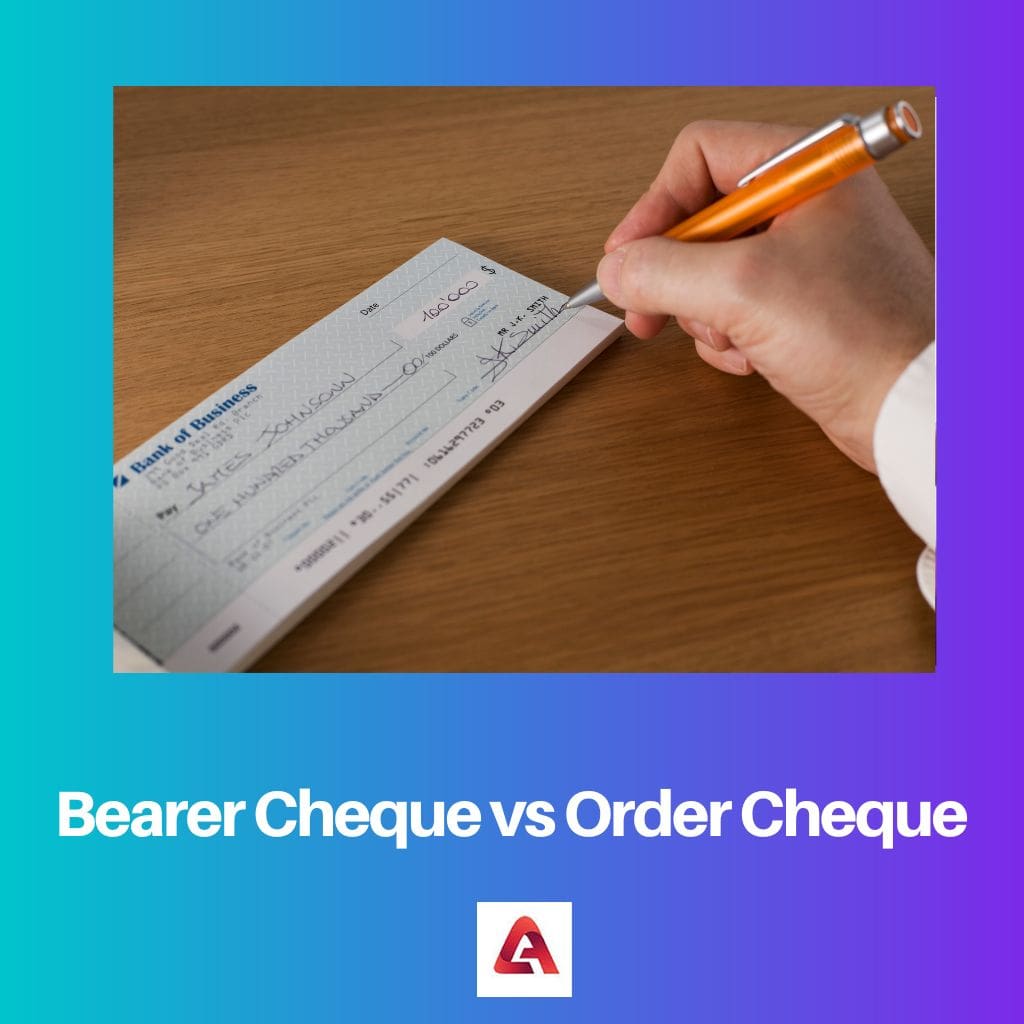
Bearer Cheque vs Order Cheque: Difference and Comparison
What is a Bearer Cheque? Through its name, the purpose of the cheque becomes quite clear. It is called a bearer cheque because anyone who bears it can encash it …
Central Bank vs Commercial Bank: Difference and Comparison
Banks play a vital role in the economy of each nation. They are very advantageous for people who want to start a business. Rather than lending money to some people, …
Swift Code vs IBAN Number : Difference and Comparison
Today, we all do bank transfers in our daily life. With the emergence of the Internet, the counting of online transfers has been increased rapidly. Global transactions have also been …
Smart Card vs Debit Card: Difference and Comparison
We all live in an era of a fast and technological world. One such thing is cards that ease our necessities. Almost everyone owns a debit card and smart card. …
Visa Signature vs Platinum: Difference and Comparison
Various types of Cards are available for financial and banking purposes, like debit cards, credit cards etc. Visa Signature and Platinum are certain types of credit cards that provides its …
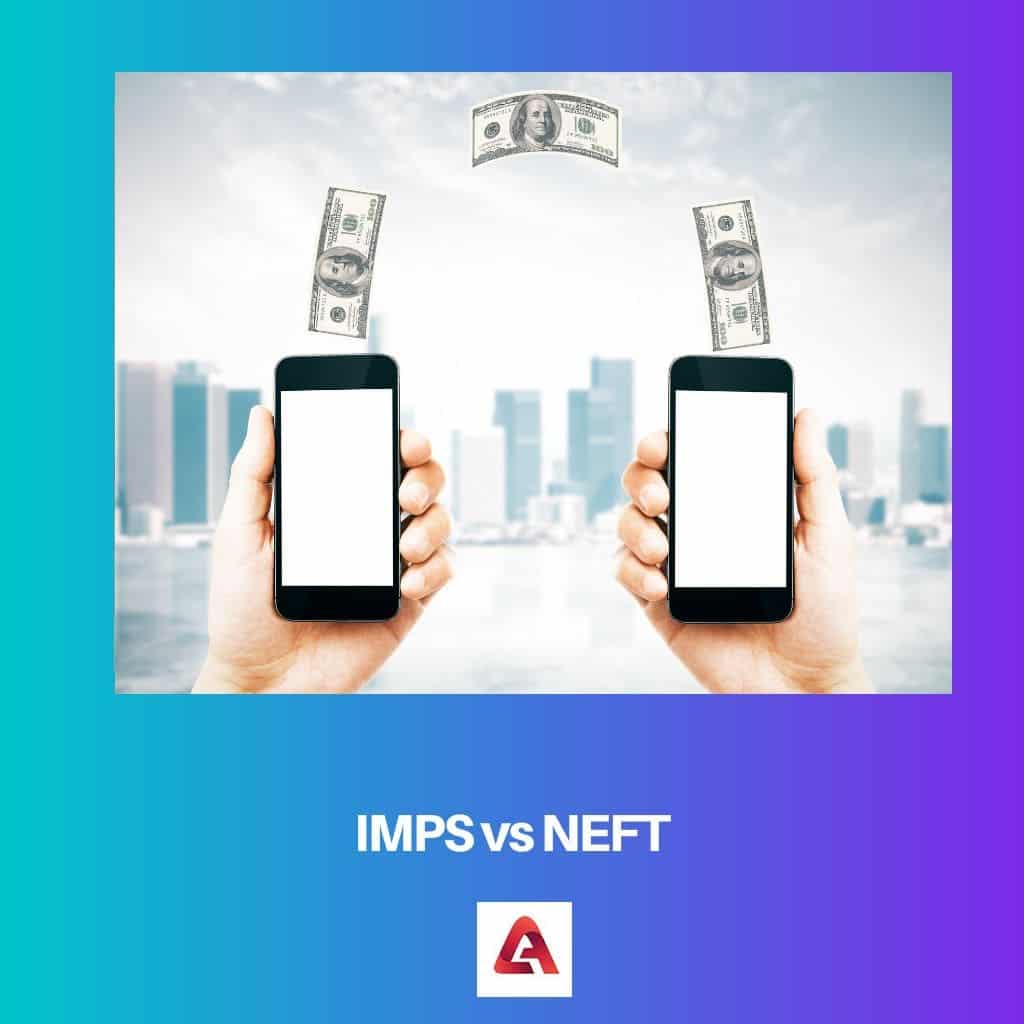
IMPS vs NEFT: Difference and Comparison
NEFT and IMPS are two types of RTGS systems based on the nature of fund transfers. NEFT and IMPS is an electronic funds transfer system that facilitates person-to-person and bank-to-bank …
PayPal Rate vs Bank Rate: Difference and Comparison
When you lend money or conduct any transaction, you have to pay interest, a small sum of money you pay for the transaction. Similarly, PayPal and Bank charge a fee …
Current Balance vs Available Balance: Difference and Comparison
The amount of money in an individual’s account is called Balance. In banking, current and available balance are confused terms. People think of the same terms. But there is a …
CRR vs SLR: Difference and Comparison
Every country’s central bank is responsible for keeping an eye on inflation and enforcing certain controls on money circulation in the industry. The CRR and SLR are key economic strategies …
Vendor vs Distributor: Difference and Comparison
The term market is widely and closely associated with our day-to-day lives. When it comes to marketing, the two most important elements are vendor and distributor. Although these two words …
Oyster Card vs Travel Card: Difference and Comparison
Visitors to London are familiar with these terms but tend to get confused at times. Both terms refer to payment methods for public transport in London, United Kingdom. Buying a …
Bank Rate vs Repo Rate: Difference and Comparison
The loans are the way by which a person gets investment, and he pays it back on a monthly basis. The loans have made it easy for people to buy …
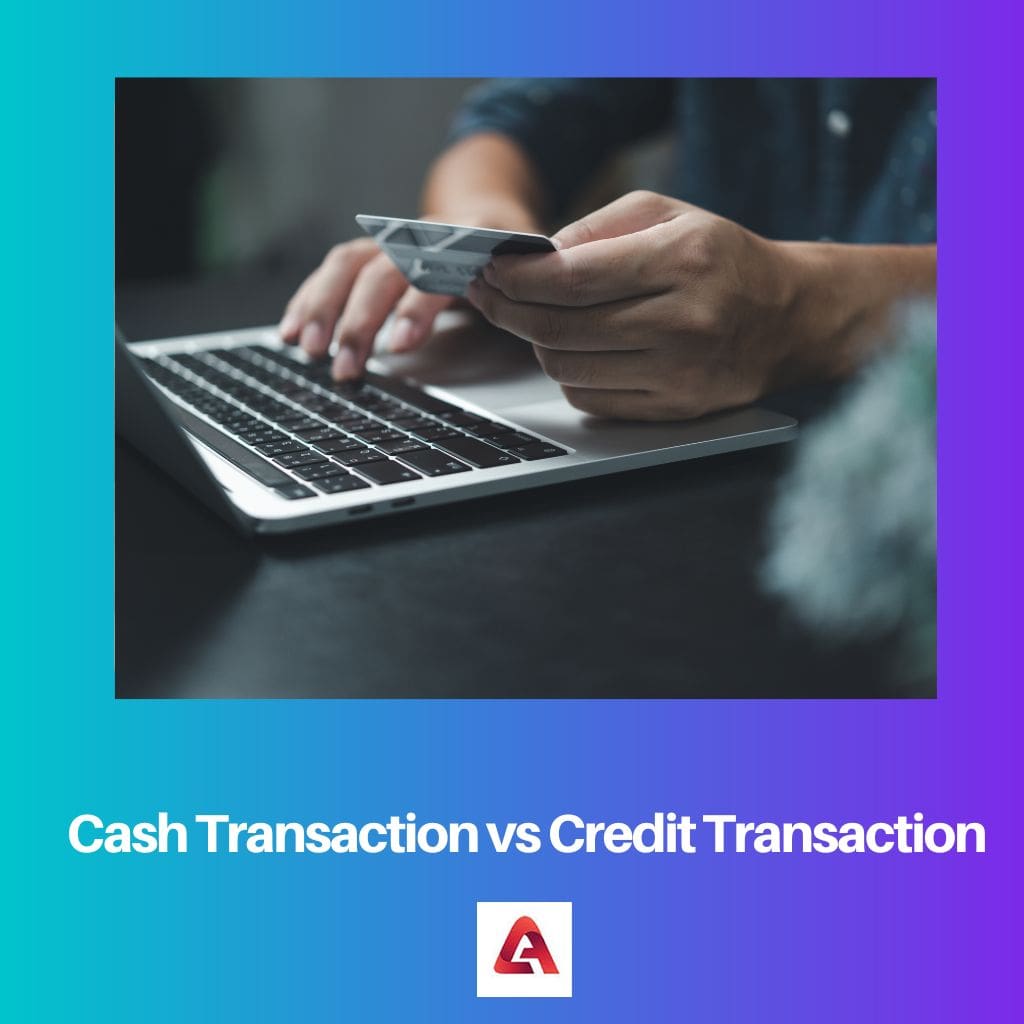
Cash Transaction vs Credit Transaction: Difference and Comparison
We observe several transactions in our daily life when we pay for goods or services in a transaction. Whether it may be a small-scale or big-scale business, there is a …
Visa vs Maestro: Difference and Comparison
Not a single person in today’s time is unknown because, in some ways, he has given his information of identity to the authorities. Visas and Maestro cards also contain the …
Landlord vs Owner: Difference and Comparison
English can be a tricky language. The words have several implications and denote varied meanings when placed in different contexts. And due to this reason, many words become the root …
PayPal Premier vs Business: Difference and Comparison
Millions of purchasers prefer the ease and security that PayPal provides. PayPal is a global leader in the digital wallet ecosystem, allowing customers all over the world to pay, send …
Allstate vs Wells Fargo: Difference and Comparison
Allstate and Wells Fargo are two fantastic internet banks that provide vital services for free. But, in the aggregate, which is the best option for you? We intend to provide …
Swift Code vs Routing Numbers: Difference and Comparison
Swift code is assigned to the instructions so that it will be helpful in the foreign market for identity. While the routing number is a number that consists of nine-digit …
PayPal Standard vs Express: Difference and Comparison
In a world where digitalization is a must, and people are still scared of online fraud, PayPal has made sending or receiving money a lot easier with full-proof security. PayPal …
Visa vs American Express: Difference and Comparison
A credit card is a financial tool that provides loans and debt to its consumers and allows them to repay the provider in future data through installments. Credit cards let …
Quid vs Bob: Difference and Comparison
Currency is one of the most important things in this world. Every people need currency to survive in this world. Currency is the same, but their values and names differ …
Pound vs Sterling: Difference and Comparison
Currency is traded all around the world. The currencies of various countries are distinct from one another. The Pound Sterling, which is associated with the United Kingdom, is one example …
NRE vs FCNR: Difference and Comparison
An NRI can earn a double income – one in the form of foreign currency, which costs more in your country and the other from your investment in Indian Rupees. …
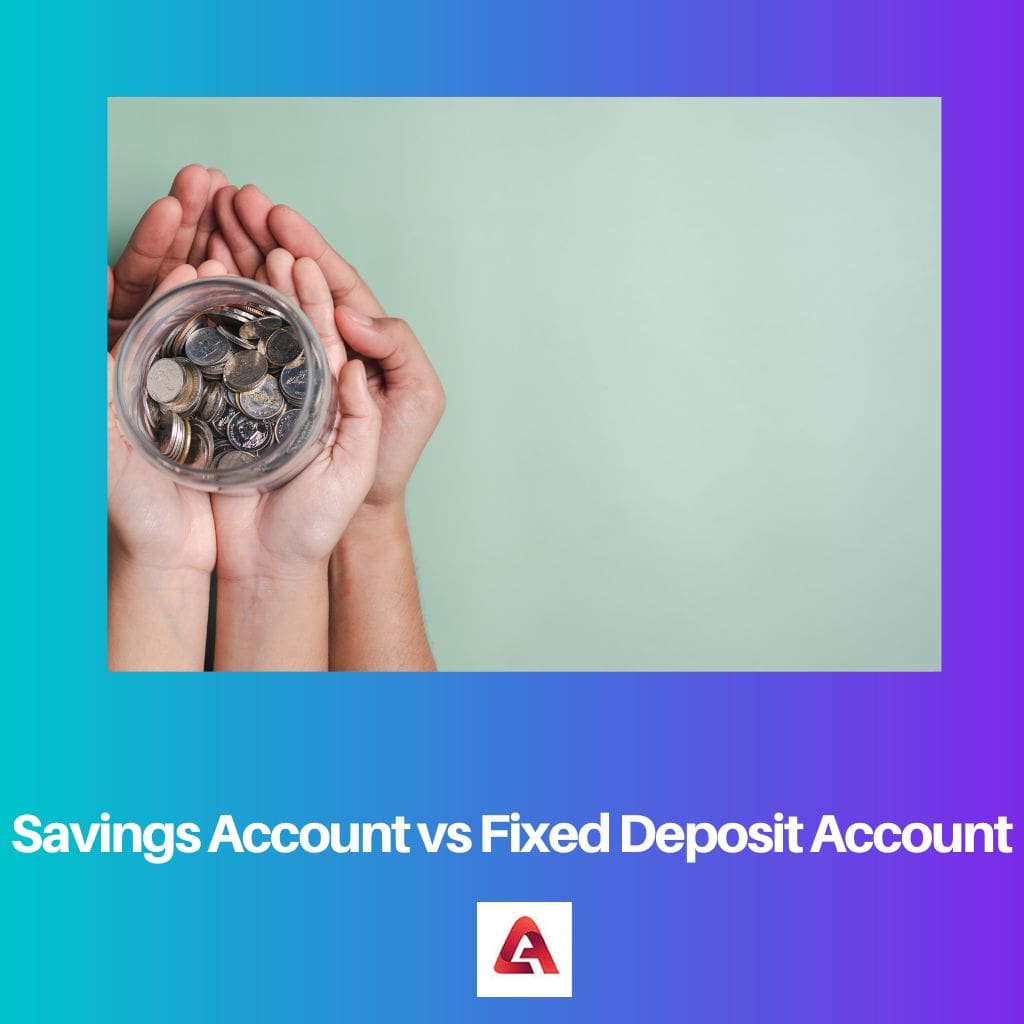
Savings Account vs Fixed Deposit Account: Difference and Comparison
Investments are one the greatest and most rewarding tools for creating wealth nowadays. For this purpose, it is necessary to have an investing platform that is secure and easy to …
OLAP vs OLTP: Difference and Comparison
OLAP and OLTP are online processing systems. However, there are prominent differences between them. OLAP and OLTP vary in their data, transaction, time, queries, and normalisation. OLAP refers to an …
ISIN vs CUSIP: Difference and Comparison
ISIN and CUSIP codes are two of the world’s most famous checkpoints for securities and are especially important for trade, selling, and purchasing of shares. ISIN vs CUSIP ISIN stands …
Credit Card Refinancing vs Debt Consolidation: Difference and Comparison
Taking loans can be highly helpful for people when they are in need. But lately, it can convert into a severe headache, too, If the loans are not paid in …
CD vs Saving Account: Difference and Comparison
A certificate of Deposit (CD) and a Savings account are both money market instruments that represent some amount of money deposited in the bank for which the bank is giving …
Credit vs Debit Transactions: Difference and Comparison
Using cards to make purchases is considered easier than cash transactions due to several reasons, including ease of access. The two main types of cards include credit cards and debit …
Money vs Currency: Difference and Comparison
Money and currency are closely connected. They almost seem to be the same. These two terms are used by people in everyday life. Money vs Currency Money is a general …
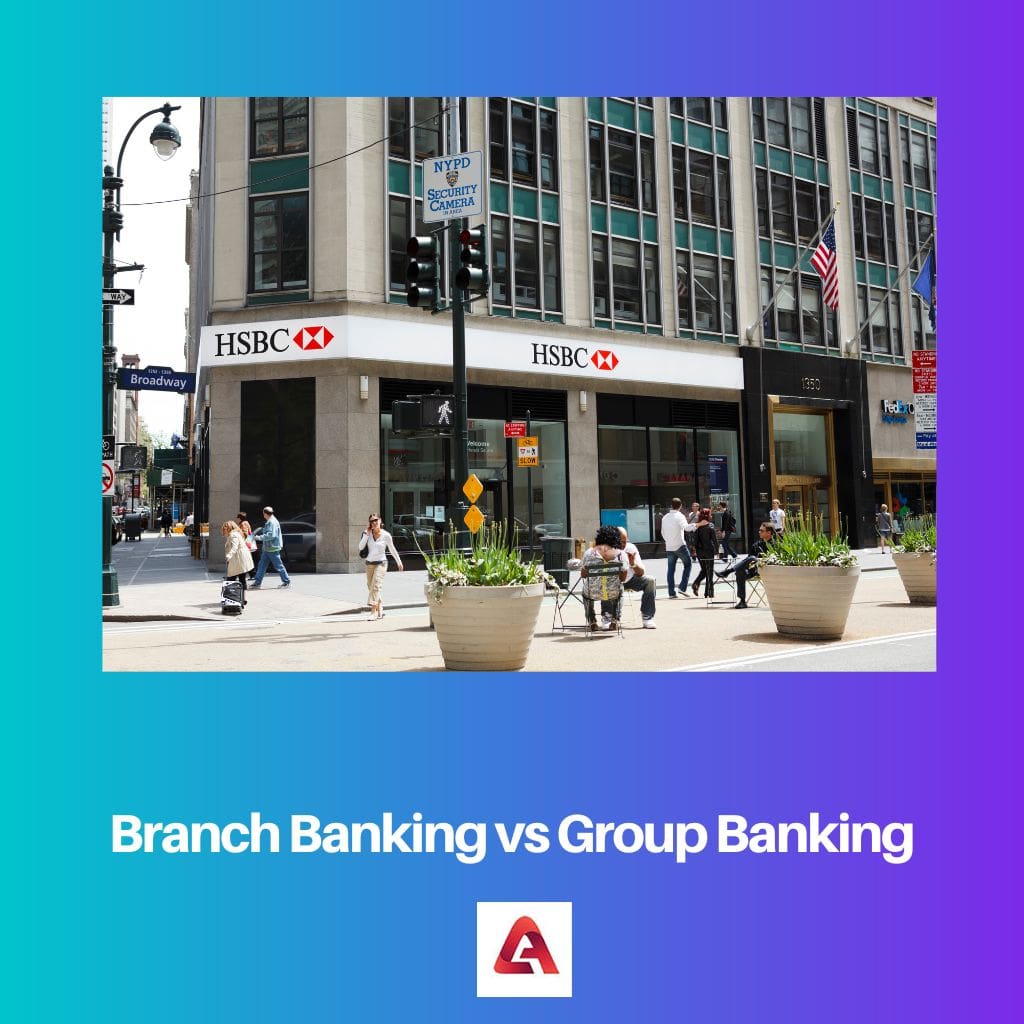
Branch Banking vs Group Banking: Difference and Comparison
There are different kinds of branches of banks. Each of them has its own workings and functions. Each of them stands out differently when it comes to operating in the …
Real vs Nominal Accounts: Difference and Comparison
Maintaining accounts for an organization is very important. There are many methods out there to maintain accounts. Different companies will opt for different methods depending on their needs. Real and …
Chime Bank vs Wells Fargo: Difference and Comparison
Chime Bank and Wells Fargo are both magnificent online banks that offer essential administrations for nothing. However, which is the most ideal decision for you, speaking? We are expecting to …
Chime Bank vs Chase: Difference and Comparison
A financial institution that helps people to deposit money, give loans etc., is known as Banks. The main function of a bank is to lend money directly or indirectly, i.e., …
Chime Bank vs Credit Union: Difference and Comparison
Banking services have different functionalities all around the world. Keeping your everyday cash requires a bank account too. As the banking business requires to charge a fee on an everyday …
Wholesale vs Institutional Banking: Difference and Comparison
The financial area assists nations with keeping up soundness and maintainability in their economy. The financial business offers various advances and freedoms to end clients, associations, and governments to develop …
Chime Bank vs Varo: Difference and Comparison
They do not exist in any physical form, just operation on a phone or computer with the help of the internet. The best examples of such banks are Chime Bank …
Chime Bank vs Ally: Difference and Comparison
We hope to provide you with what you want to know which is best for you – we have accounts with both Ally Bank and Chime personally, as they are …
Quid vs Dollar: Difference and Comparison
The cash of a nation is the foundation of its economy. Nonetheless, the nations, for example, Sweden, that has gone totally paperless, there are many paper monetary standards on the …
Sezzle vs Afterpay: Difference and Comparison
Buy Now and Pay Later is an incredible plan for shoppers. Especially if you are an online shopper, this feature shall be of great help. And if the repayment option …
Sezzle vs Klarna: Difference and Comparison
Sezzle and Klarna are both “Buy Now, Pay Later” (BNPL) services, allowing users to make purchases and pay in installments. Sezzle divides payments into four interest-free installments, while Klarna offers …
Cardano vs Dollar: Difference and Comparison
Cardano’s value against the US Dollar fluctuates based on market dynamics, reflecting supply and demand for ADA tokens. Factors influencing this include Cardano’s technological developments, project partnerships, and overall market …
Available vs Posted Balance: Difference and Comparison
The available balance represents the total amount of funds in a bank account that a customer can use for transactions. It includes the posted balance (actual funds in the account) …
Mobile Banking vs Internet Banking: Difference and Comparison
Mobile banking and Internet banking are two different but online modes of banking introduced by the banks only that enable their customers to make transactions whenever and wherever. Both forms …
Retail vs Consumer Banking: Difference and Comparison
Both retail banking and consumer banking are services provide to their customers with some additional facilities for their customers to keep their money safe in banks. Retail Banking vs. Consumer …
Retail vs Corporate Banking: Difference and Comparison
Banking plays a vital role in our economy. They ensure that the transactions happen swiftly and without any disturbance. They are a financial system that can lend money to people …
Retail Banking vs Personal Banking: Difference and Comparison
Banks provide retail banking and personal banking services to the general public or individual or retail customers rather than corporate, businesses, institutions, etc., and both are pretty similar in products …
Quid vs Euro: Difference and Comparison
Currency is the medium of exchange of goods and services authorized by the government of a particular country. Currency is the backbone of an independent and strong nation. There are …
Retail vs Investment Banking: Difference and Comparison
Banking is the most basic and necessary activity in everyone’s daily life. It helps handle cash, credit, and transactions while providing a safe space for the same. Banks also offer …
Personal vs Commercial Banking: Difference and Comparison
There are so many types of banking systems, such as utility, scheduled or unscheduled, indigenous, and so on. However, personal banking, as well as commercial banking, still plays a significant …
Corporate vs Private Banking: Difference and Comparison
Everyone is aware of the term Banking. But What is Banking, have you ever wondered? Well, Banking can be considered a driver which drives the economy financially. For any economy …
Pound vs Ounce: Difference and Comparison
Pound and ounce are units of measure used to weigh objects, things, and living beings (for pounds). A pound is also written in Ib. And an ounce is also registered …
Retail vs Universal Banking: Difference and Comparison
Individuals used to put their money in storage spaces, underground, or with grains before banks came into the picture. Their money was sometimes stolen or consumed by rats. In either …
Quid vs Shilling: Difference and Comparison
In the British system, many names and values are given to the coins, which have been used for many years. Farthing, penny, crowns, and pounds are a few values among …
Pound vs Dollar: Difference and Comparison
Money plays a significant role in our day-to-day lives in various forms, for business, education or anything else in the purchase. There are various forms of currencies used across the …
Public Sector Bank vs Nationalized Bank: Difference and Comparison
To many of us, both ‘public sector bank’ and ‘nationalized bank’ might not seem so different, but there are a few notable differences between them. A bank is a financial …
Corporate Banking vs Commercial Banking: Difference and Comparison
There are so many confusing terms regarding banking, and people do not know about them. Just like that, people get confused between the terms corporate banking and commercial banking. Corporate …
Cooperative Banks vs Public Sector Banks: Difference and Comparison
Before banks came into the picture, people used to save their money in underground lockers or with grains. At times, their money used to get stolen or eaten by rats. …
Universal Banking vs Commercial Banking: Difference and Comparison
Banking is the system that handles all financial transactions. Several types of banking provide different types of facilities; Universal and Commercial Banking are also two types of banking with functions …
Wholesale Banking vs Commercial Banking: Difference and Comparison
The banking sector helps countries to maintain stability and sustainability in its economy. The banking industry offers different loans and opportunities to end-users, organizations, and governments to grow their business …
Wholesale Banking vs Corporate Banking: Difference and Comparison
Banks play a significant role in the economic growth of the country. Banks are the financial intermediaries between lenders and borrowers to fulfil their needs for funds and returns. Banks …
Group Banking vs Chain Banking: Difference and Comparison
Banking is an industry that handles financial transactions. There are different types of banks functioning in various sectors of health, education, business, profession, agriculture, and so on to keep the …
Stimulus Check vs Debit Card: Difference and Comparison
A term that has gained maximum importance among Americans is “Stimulus Check”. According to recent news, the Corona Virus relief money or the Stimulus Check would be issued via Debit …
Personal Banking vs Private Banking: Difference and Comparison
Banking is one of the most reliable sectors in this advancing world. It is a trustworthy industry that provides a safe environment to store cash and credits. Not only this, …
Corporate Banking vs Business Banking: Difference and Comparison
Banking is ubiquitous and essential in our day-to-day life. It helps us to manage our money and gives us loans when needed. Many banking types are unfamiliar to everyone; hence, …
Personal vs Business Banking: Difference and Comparison
In General, when a person has his businesses, he has two bank accounts. That person will have all his income and expenses, which is known as personal banking and second …
Nationalised vs Cooperative Banks: Difference and Comparison
Indian Banking Systems provides many services to the public sector elevating the Indian economy. The Reserve Bank of India regulates these banks through the Parliament Act of the Government of …
Corporate vs Investment Banking: Difference and Comparison
Today’s world has many banks and different types of banking systems. Sometimes people get confused about some terms related to banking. Banking is also needed when it comes to industries …
Branch Banking vs Chain Banking: Difference and Comparison
Various types of banks are operating in the global economy to meet the financial needs of multiple groups of people involved in agriculture, industry, professions, and other activities. Knowing the …
Branch vs Agent Banking: Difference and Comparison
The concept of banking dates back many centuries. A bank is a system that deposits, borrows, and gives its users loans. It bridges those who have extra money to save …
Retail vs Wholesale Banking: Difference and Comparison
In today’s scenario, everything is revolutionized towards going globally digitally. The use of plastic money has increased in the last five years. But an individual must have a bank account …

What is Investment Bank? | Definition, Working, Pros vs Cons
Banking is a service that everyone uses, whether it is an individual, small business, big corporation, or government. Individuals and small businesses use commercial banks for their day-to-day financial activity, …

What is Computerised Accounting? | Definition, Working, Advantages vs Disadvantages
Computerised accounting is the new-age method of gathering, recording and maintaining the financial information of a business or an organisation. This system entered the accounting world following the advent of …

What is a Letter of Credit? | Definition, Working, Types, Pros vs Cons
A letter of credit is a document called a credit letter given by a bank or financial services. A letter of credit guarantees a seller receives the agreed payment from …
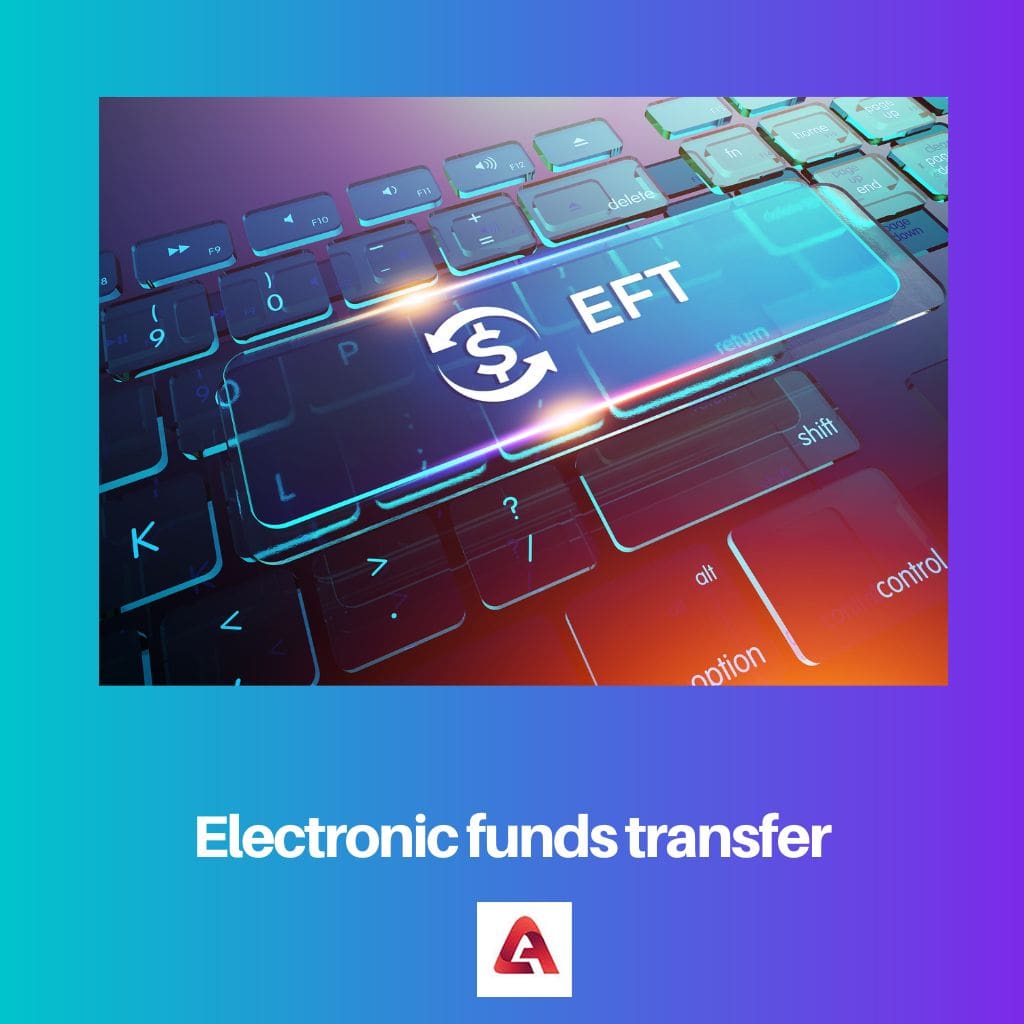
What is EFT? | Definition, Working vs Types
Electronic funds transfer (EFT) transfers money from one bank account to another. It takes without a manual transaction for single or multiple institutions. It is a cashless system of transferring …

What is Manual Accounting? | Definition, Uses vs Working
Before the advent of the digital revolution, most business-related activities, financial accounting, used to be done by hand using pen, pencil and paper. Even today, this traditional manual accounting methodology …

What is Bank Guarantee? | Working, Types, Examples, Pros vs Cons
A guarantee means giving something as security. A lending organisation offers a bank guarantee that promises to pay for forfeiture if a debtor defaults on money or voids contract obligations …

What is a Merchant Bank? | Definition, Working vs Types
What is Merchant Bank The traditional functions include: How does it work? Advantages and Disadvantages of Merchant Banks: Advantages Disadvantages Merchant Banking customers get the most honest advice as they …
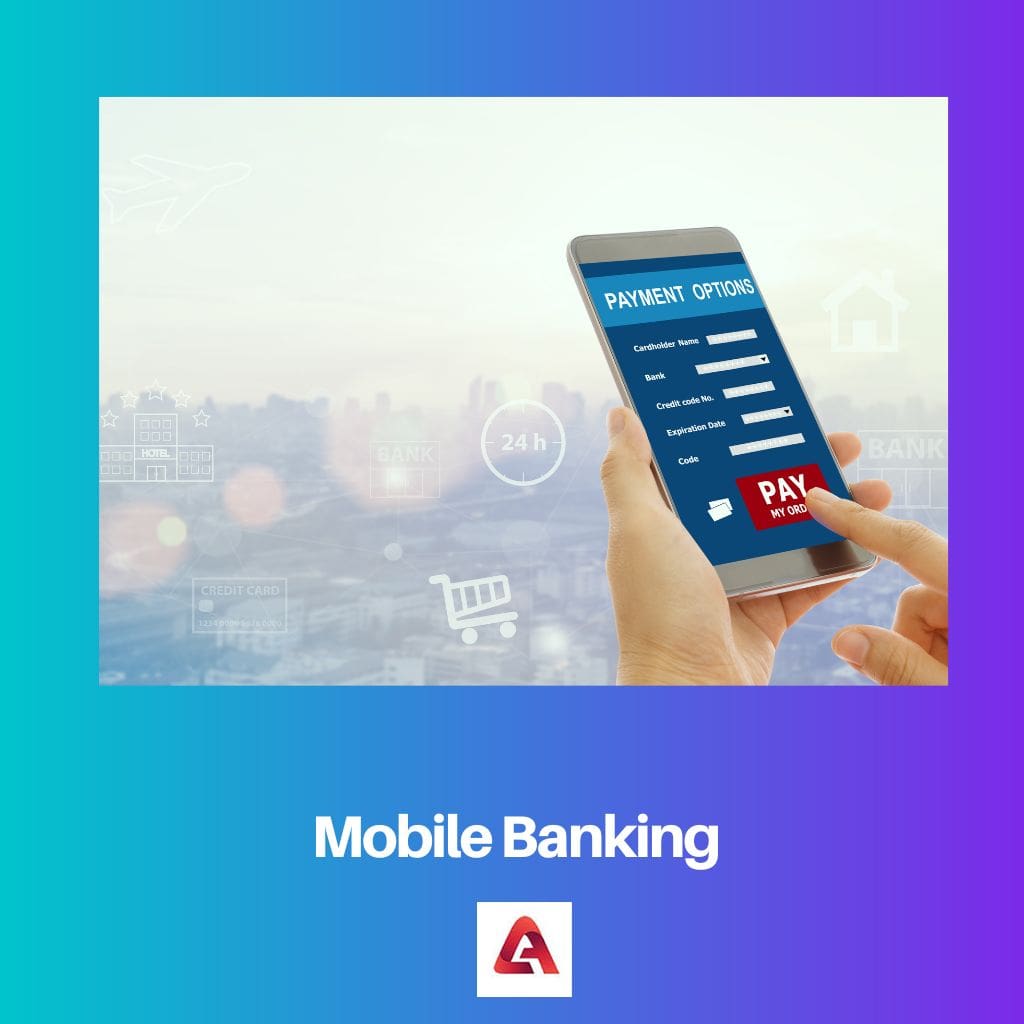
What is Mobile Banking? | Definition, Working, vs Types
Mobile/Cellular banking is operating your bank account via a mobile device. Phone banking allows the customer to perform the same tasks which can be done by visiting the branch. Phone …

What is Public Sector Bank? | Definition, Working, Advantages vs Disadvantages
Banks are the most important financial institutions in the world. The banking system makes all financial transactions possible without much hassle. People can save their money in banks, take loans, …

What is Private Sector Bank? | Definition, Working, Pros vs Cons
The bank is the most trusted financial institution among the public. This institution fulfils all our financial needs. Anyone can open an account in a bank and do all of …
Sort Code vs Swift Code: Difference and Comparison
Sort code is a numerical code used primarily in the United Kingdom and Ireland to identify individual branches of banks or financial institutions for domestic transactions within those countries. In …

What is Loan? Definition, Components, Advantages vs Disadvantages
In its essence, the word ‘loan’ refers to borrowing any particular object by a person or a collective from another to return it within a stipulated amount of time. This …
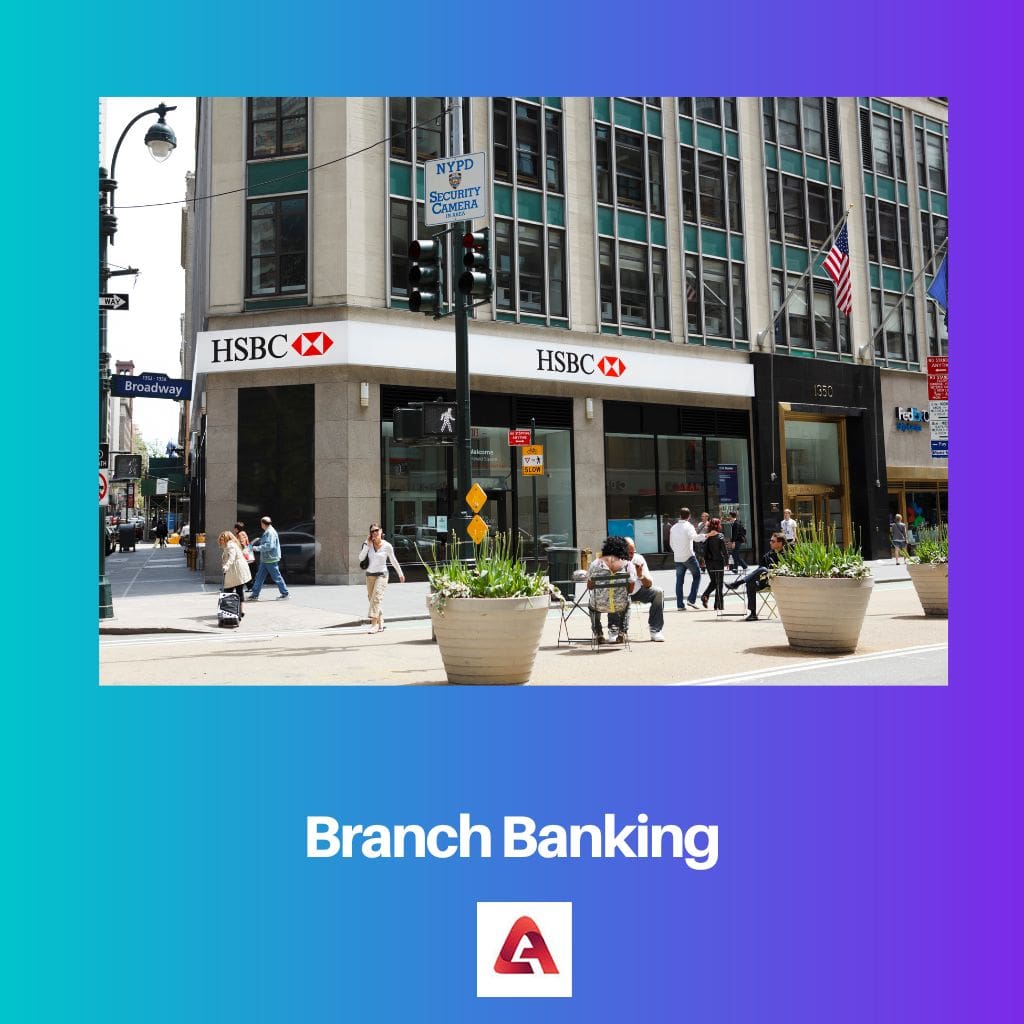
What is Branch Banking? | Working, Guide, Pros vs Cons
Banking has become the foundation of modern economic activity. Banks offer various financial services like saving, loans, and fund transfers. Everyone uses banking services daily, Whether an individual or a …

What is Unit Banking | Working, Merits vs Demerits
Banking is an essential part of modern economic activity. Doing large financial transactions is nearly impossible without a banking system. In many places, doing large financial transactions without a bank …
Gross vs Net NPA: Difference and Comparison
NPA, or, Non-performing assets, are loans that have been left unpaid for a long time after the completion of the repayment time. Such assets are added to the bank’s balance …
Overdraft vs Demand Draft: Difference and Comparison
The backbone of the modern economy is the banking system. It is one such financial institution on which almost all individual and business entity depends. Banking institutions worldwide offer various …
Stale Cheque vs Post Dated Cheque: Difference and Comparison
Stale and post-dated cheques are two of the many types of cheques that an individual can cash in at a bank. Stale Cheque vs Post Dated Cheque The difference between …
UPI vs Internet Banking: Difference and Comparison
Unified Payment Interface (UPI) and Internet banking are two of the most commonly used banking tools which facilitate the user to perform several baking operations through the internet. UPI vs …
Internet Banking vs Debit Card: Difference and Comparison
Internet Banking and Debit card are two different methods of conducting monetary transactions. Internet Banking vs Debit Card The difference between Internet banking and debit card is that while using …
Mobile Money vs Mobile Banking: Difference and Comparison
Mobile money and Mobile Banking are separate terms for a modernized cashless transaction. Mobile money and Mobile banking are maintained by the financial institution that provides the service for the …
Pound vs Quid: Difference and Comparison
The currency of a country is the backbone of its economy. However, the countries such as Sweden that have gone entirely paperless have many paper currencies in the world, such …
Merchant vs Wholesale Banking: Difference and Comparison
Merchant banking primarily deals with providing financial services such as underwriting, advisory, and investment management to corporations and high-net-worth individuals. On the other hand, wholesale banking focuses on serving large …
Internet Banking vs NEFT: Difference and Comparison
Internet Banking allows users to manage their accounts, transfer funds, and conduct various financial transactions online through a bank’s website or app. NEFT (National Electronic Funds Transfer) is a specific …
EFT vs RTGS: Difference and Comparison
EFT (Electronic Funds Transfer) and RTGS (Real-Time Gross Settlement) are both electronic payment systems used for transferring funds between bank accounts. EFT involves the batch processing of transactions, which may …
EFT vs ECS: Difference and Comparison
EFT (Electronic Funds Transfer) and ECS (Electronic Clearing Service) are both electronic payment methods facilitating fund transfers, but they differ in their scope and functionality. EFT encompasses a broader range …
ACH vs eCheck: Difference and Comparison
ACH (Automated Clearing House) transfers electronically move funds between bank accounts, used for recurring payments like salaries or bills, while eChecks are digital versions of paper checks, utilizing the same …
EFT vs NEFT: Difference and Comparison
EFT (Electronic Fund Transfer) is a broad term encompassing various electronic payment methods, including NEFT (National Electronic Funds Transfer), which is a system facilitating interbank transfers within India. NEFT operates …
Bank Guarantee vs Solvency Certificate: Difference and Comparison
A bank guarantee is a commitment by a bank to cover a specific amount of financial liability on behalf of a client if they fail to fulfill their contractual obligations. …
ACH vs Wire Payment: Difference and Comparison
ACH (Automated Clearing House) payments are electronic transfers between banks within the same country, used for domestic transactions, offering lower fees and longer processing times, taking 1-3 business days. Wire …
ACH vs Direct Debit: Difference and Comparison
ACH (Automated Clearing House) is a system facilitating electronic funds transfers within the US, enabling individuals and businesses to send and receive payments electronically, used for recurring payments like utility …
ACH vs RTGS: Difference and Comparison
ACH (Automated Clearing House) is a batch processing system for electronic funds transfers, used for low-value, high-volume transactions, offering slower settlement times but lower fees. RTGS (Real-Time Gross Settlement), on …
ACH vs SWIFT: Difference and Comparison
ACH (Automated Clearing House) is a domestic payment system commonly used in the United States, facilitating electronic fund transfers between bank accounts within the country, known for its low cost …
Merchant Bank vs Development Bank: Difference and Comparison
Merchant Bank: Primarily focused on providing financial services like underwriting, corporate finance, and advisory services to businesses, including mergers and acquisitions, trading of securities, and managing investment portfolios. Development Bank: …
Bank Guarantee vs Bonds: Difference and Comparison
Bank Guarantee is a form of financial commitment issued by a bank, guaranteeing the fulfillment of a contract or payment obligation between two parties. Bonds, on the other hand, represent …
Private Equity vs Investment Banking: Difference and Comparison
Private equity involves investing in private companies or taking public companies private, with a focus on operational improvements and long-term value creation, through leveraged buyouts. Investment banking, on the other …
Overdraft vs Current Account: Difference and Comparison
A current account is a basic bank account that allows deposits, withdrawals, and day-to-day transactions. An overdraft, on the other hand, is a facility provided by the bank allowing the …
Bank Guarantee vs Fixed Deposit: Difference and Comparison
A bank guarantee is a financial commitment by a bank to cover a specified amount of debt or contractual obligation on behalf of a customer if they fail to fulfill …
Loan vs Limit: Difference and Comparison
A loan is a specific amount of money provided to an individual or entity by a lender, which must be repaid with interest over a predetermined period. Conversely, a limit …
Internet vs Traditional Banking: Difference and Comparison
Internet banking offers convenient access to financial services from anywhere, with 24/7 availability and quick transactions, while traditional banking relies on physical branches and face-to-face interactions, limited by business hours …
Loan vs Advance: Difference and Comparison
A loan is a sum of money borrowed from a lender, with fixed terms for repayment, including interest. It is used for specific purposes such as buying a house or …
Loan vs Deposit: Difference and Comparison
A loan is a sum of money borrowed by an individual or entity that needs to be repaid with interest, while a deposit is an amount of money placed in …
Short vs Long Term Loans: Difference and Comparison
Short-term loans have a shorter repayment period, within a year, with higher monthly payments but lower overall interest costs. In contrast, long-term loans offer extended repayment periods, several years, resulting …
Overdraft vs Term Loan: Difference and Comparison
An overdraft is a flexible credit facility linked to a bank account, allowing withdrawals beyond the account balance, while a term loan is a fixed amount borrowed for a specified …
Overdraft vs Cheque: Difference and Comparison
An overdraft is a credit facility allowing account holders to withdraw more money than their balance, subject to a limit. A cheque is a written order from an account holder …
Charge Card vs Credit Card: Difference and Comparison
A charge card requires full payment of the balance each month, with no pre-set spending limit, while a credit card allows users to carry a balance with interest charges. Charge …
Cash vs Fund: Difference and Comparison
Cash refers to physical currency or its equivalent held by individuals or organizations for immediate transactions or emergencies, providing liquidity but offering no potential for growth. Conversely, funds represent a …
Credit Card vs Debit Card: Difference and Comparison
Credit cards allow users to borrow money up to a predetermined limit, with interest charged on unpaid balances, offering rewards and perks, while debit cards directly deduct funds from the …
Credit Report vs Credit Score: Difference and Comparison
A credit report is a detailed record of a person’s credit history and financial activities. In contrast, a credit score is a numerical representation of an individual’s creditworthiness derived from …
EFT vs ACH: Difference and Comparison
EFT (Electronic Funds Transfer) is a broader term that encompasses various electronic methods of transferring funds, while ACH (Automated Clearing House) is a specific type of EFT system commonly used …
Letter of Credit vs Bank Guarantee: Difference and Comparison
A letter of credit is a financial instrument that guarantees payment to a seller on behalf of a buyer for goods or services. In contrast, a bank guarantee is a …
Commercial vs Merchant Bank: Difference and Comparison
A commercial bank primarily offers a wide range of financial services to individuals and businesses. In contrast, a merchant bank specializes in providing advisory and capital-raising services, for corporate clients …
Overdraft vs Loan: Difference and Comparison
An overdraft is a flexible credit facility linked to a current account, allowing account holders to withdraw more money than they have, subject to a predetermined limit, with high interest …
Scheduled vs Non-Scheduled Banks: Difference and Comparison
Scheduled banks are those financial institutions that are included in the Second Schedule of the Reserve Bank of India Act, 1934. They are regulated under the Banking Regulation Act, 1949, …
Public Sector vs Private Sector Banks: Difference and Comparison
Public sector banks are owned and operated by the government, serving the broader socio-economic objectives, prioritizing financial inclusion and developmental initiatives. In contrast, private sector banks are privately owned entities …
Unit Banking vs Branch Banking: Difference and Comparison
Unit banking is a system where individual banks operate autonomously without branches, resulting in limited geographic coverage and potential concentration of risk. In contrast, branch banking involves a network of …